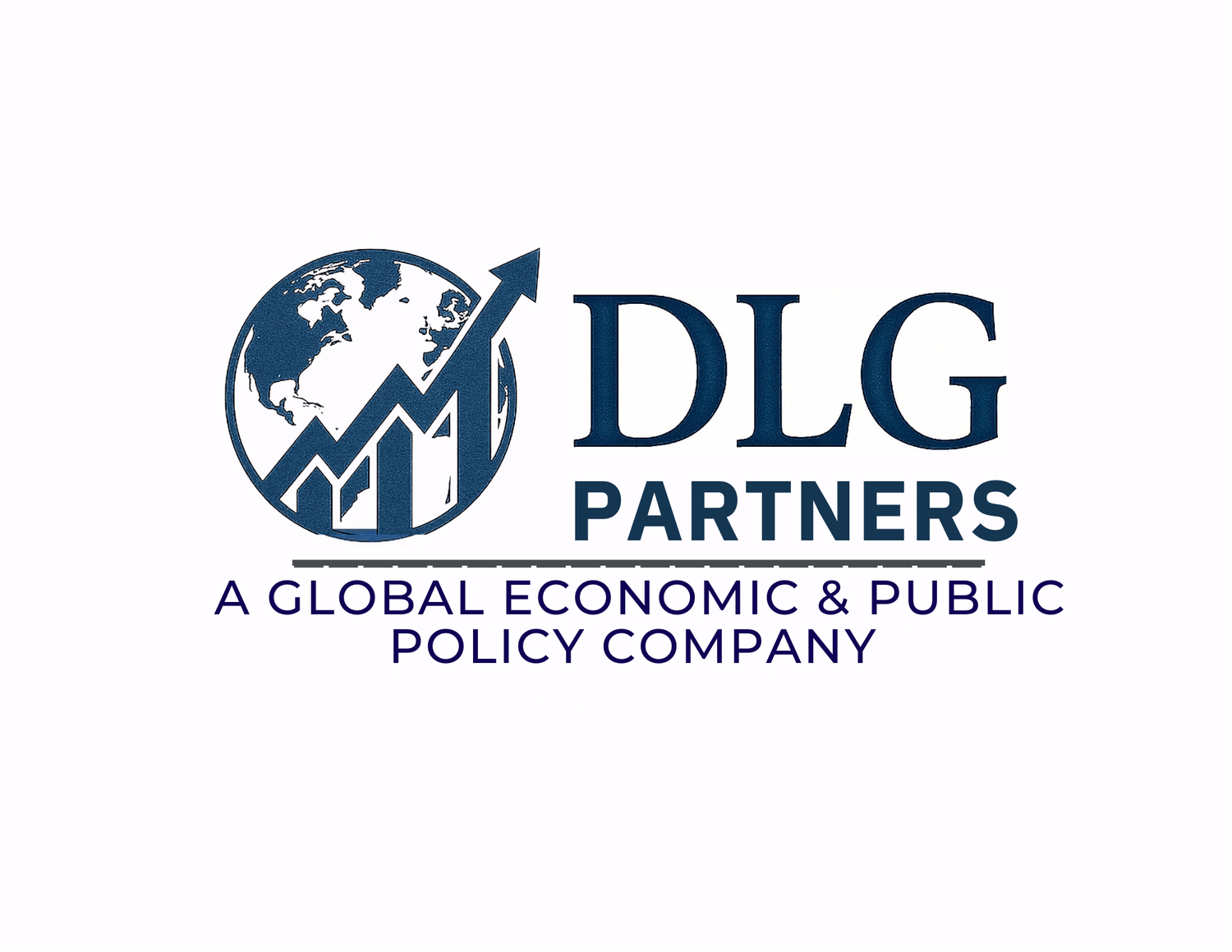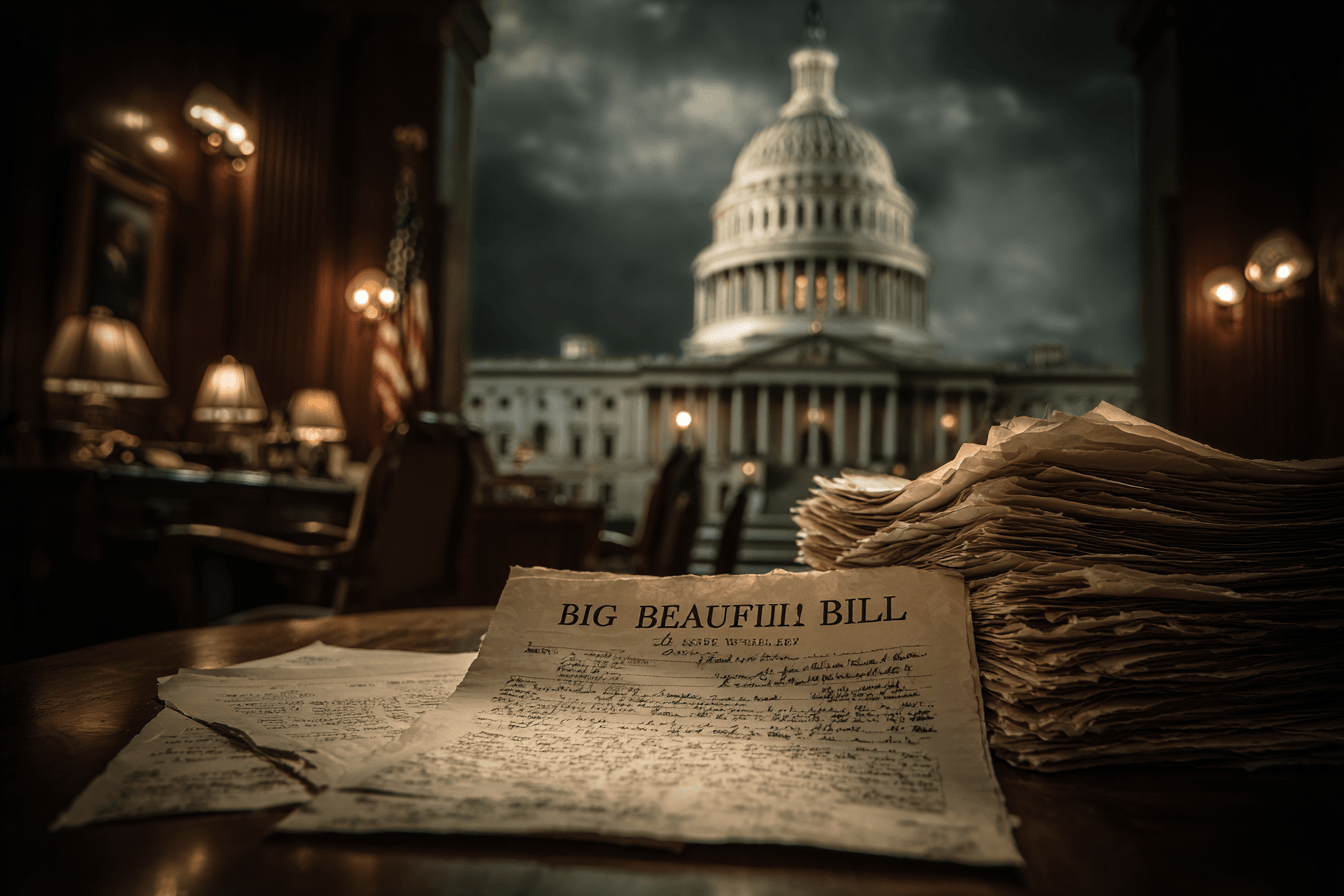
A CRITICAL REFLECTION ON THE ‘BIG, BEAUTIFUL BILL”: PROGRESS, PERILS, AND THE PATH FORWARD
In a recent legislative milestone, the House of Representatives has passed what has been dubbed the ‘big, beautiful bill,’ a sweeping, multifaceted piece of legislation that encapsulates the core of former President Trump’s domestic policy ambitions. With a resounding 218-214 vote, and amidst months of fierce intra-party negotiations, the bill now heads to President Trump’s desk, poised to become a defining element of his potential second term. This legislation is a testament to the resilience and determination of the GOP, uniting behind a comprehensive package that aims to solidify their policy priorities: extending tax cuts, increasing energy production, tightening immigration enforcement, and most controversially, implementing significant cuts in Medicaid and other social programs, measures designed to finance these expansive initiatives.
A Triumph of Political Strategy and Ideological Unity
The swift assembly of this bill after lengthy debates exemplifies the Republican Party’s adeptness at harnessing political will and orchestrating legislative victories. Speaker Mike Johnson, celebrating the passage, heralded it as a foundational step toward making America “stronger, safer, and more prosperous,” aligning their ideological objectives with national economic ambitions.
Yet, beneath this rhetoric lies a complex web of policy implications and ethical considerations. By expanding tax cuts, especially those that benefit the wealthy, and increasing defense and energy investments, the bill echoes a conservative vision of economic growth rooted in market-driven principles and energy independence. However, this often comes at the expense of the social safety net, raising fundamental questions about the long-term societal costs.

Deepening Divisions and Long-term Consequences
The legislation’s passage was marked by intense opposition, especially from Democrats, who denounced it as a “reverse Robin Hood” scheme designed to shift benefits from low- and middle-income Americans toward the wealthy and corporate interests. The bill proposes drastic reductions in low-income health and nutrition benefits, aiming to offset the costs of tax cuts and increased military spending, cuts that threaten to leave millions vulnerable, especially amidst today’s ongoing public health crises and economic uncertainties.
Moreover, the bill’s fiscal footprint is staggering. The Congressional Budget Office projects a $3.3 trillion increase in deficit spending over the next decade, amplifying concerns about the country’s mounting debt burden. This financial trajectory risks future economic stability, potentially limiting government responsiveness and squeezing vital investments in infrastructure, education, and social programs.
Deepening Divisions and Long-term Consequences
While deficit concerns are magnified, proponents argue that these measures invigorate the economy and give the United States the strategic flexibility to confront global challenges. Yet, history warns us of the perils of uncontrolled borrowing and unfunded tax cuts, which often lead to inflationary pressures, increased interest costs, and compromised public services.
The bill’s passage, therefore, underscores a pivotal debate: should economic policy prioritize immediate growth and strategic gains, even if it entails sacrificing long-term fiscal responsibility? Or should it uphold a cautious approach that balances expansion with sustainability? As the bill advances, these questions will shape not only policy but the very fabric of American social contract.
The Human Dimension
Cuts that Impact Lives
Perhaps most troubling are the cuts to programs like Medicaid and Medicare. These safety nets serve as vital lifelines for the most vulnerable, elderly, disabled, and impoverished Americans, ensuring access to essential healthcare that these individuals could otherwise scarcity out of reach. The proposed reductions, while seen as necessary offsets by some policymakers, threaten to undermine decades of progress in expanding healthcare access.
For millions, such cuts could mean delayed treatments, worsened health outcomes, and ultimately, a diminished quality of life. The ethical dimensions of these policy choices cannot be overstated, prompting us to ask: in our pursuit of economic and strategic objectives, are we neglecting our moral obligation to protect the most vulnerable?
Balancing Hope with Responsibility
Supporters of the bill, including myself, view it as a necessary step in affirming America’s global competitiveness, reinforcing its defenses, and maintaining economic momentum. Yet, this optimism must be tempered with a sober recognition of the risks involved, risks that threaten to undermine the social fabric and burden future generations with unmanageable debt.
It is imperative that policymakers navigate this landscape with wisdom and compassion, ensuring that the pursuit of growth does not come at the expense of the social contract that binds us as a nation. This requires transparency, accountability, and a deep commitment to responsible legislation that considers both immediate gains and long-term consequences.
The ‘big, beautiful bill’ embodies the complexity and contradictions of contemporary American politics. It is both a symbol of progress and a mirror of our unresolved divisions, a measure that can potentially elevate the nation or deepen its inequalities.
As citizens and leaders, we must advocate for an approach that marries economic vitality with social responsibility, innovation with prudence, and security with compassion. Only through such balanced stewardship can we forge a future where progress is inclusive, sustainable, and just.
Let us remember that true strength lies not merely in legislative achievements but in our collective ability to uplift all Americans, ensuring that prosperity is shared, that safety is universal, and that our nation’s legacy is one of compassion and resilience.

Oliver N.E. Kellman, Jr., J.D. Managing Partner & Executive Managing Director
“In the digital age, your online footprint can open borders—or close them. The line between security and liberty has never been thinner.”
— Oliver Kellman
Follow me
ABOUT
Created with © systeme.io



